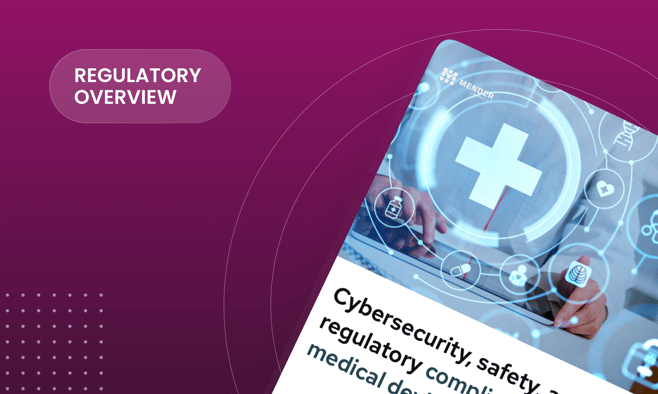Decarbonizing the future through a future-proofed OTA update infrastructure
Download nowTable of contents
|
ANONYMOUS CUSTOMER Alternative energy customer |
Europe |
In today’s modern connected world, transitioning to sustainable energy is the cornerstone of all the technologies enjoyed and relied upon daily. Aiming to progress alternative energy solutions and reduce the reliance on fossil fuels, a European battery technology innovator, steps in with a bold and simple plan to enable the future of energy by developing a sustainable battery cell out of their main plants in Europe.
The company aims to accelerate the transition to a decarbonized future through its sustainable battery cells and power systems driven by its mission to build the world's greenest battery with a minimal carbon footprint and high recycling ambitions. With continued R&D and its dedication, the company assembled the first lithium-ion battery cell at its main factory in the early 2020s.
The company’s growth continues, signing a multi-million dollar factory expansion contract to further its green energy ambitions and deliver alternative energy solutions across Europe.
|
90% less
|
400+ GWh |
|
C02 compared to cells made with coal power
|
market growth by the beginning of 2030 |
The Challenge
Objectives
| Bolster compliance with timely updates across products | |
| Shorten the time-to-market of battery cells and power systems | |
| Future-proof the business in light of the EU Cyber Resilience Act | |
| Optimize operations and network efficiency | |
| Decrease production costs by switching to a real-time operating system (RTOS) |
The company previously chose Mender for over-the-air (OTA) updates to its Linux-based battery management system. However, as its product line scaled to meet growing market demand, particularly in the energy storage sector, the company needed to significantly reduce the cost of production per unit to remain competitive.
The pressure to cut costs led the company to transition from a Linux-based system to the real-time operating system (RTOS), Zephyr. The switch to Zephyr enabled the company to reduce production costs by 86%. While the transition to Zephyr was essential for cost savings, it introduced a critical challenge: the existing OTA update infrastructure was selected based on the Linux version of its energy system.
Without a robust and secure OTA update solution for their Zephyr-based battery cells, the company risked losing the update security, scalability, and reliability already proven with Mender for its Linux-based products. OTA updates were also crucial for remote monitoring and predictive maintenance, and enabling the quick iteration of software. Additionally, the energy storage systems, which are vital for its business, required real-time updates to prevent costly disruptions, extend battery life, and optimize performance based on real-world usage data.
From a security standpoint, OTA updates allow timely identification and remediation of breaches, even in systems rarely updated and considered generally secure. Without an OTA solution, the company risked being unable to react quickly to issues in the field, jeopardizing its time to market and ability to meet customer expectations.
The company considered developing an OTA solution in-house or relying on alternative third-party providers. However, in-house solutions and alternatives fell short in several critical areas. Rebuilding its OTA update infrastructure would impact critical operations like remote monitoring, predictive maintenance, and regulatory compliance—especially in the context of stringent energy sector requirements, such as NIS2, and critical European regulations like the Cyber Resilience Act (CRA). Regulations like the EU CRA made it imperative for the company to have a secure update mechanism. The company needed a reliable OTA solution to ensure compliance, maintain customer trust, and secure its battery cells.
To continue to grow, the company needed to remain focused on building products for its customers; diverting scarce development resources to create an underdeveloped OTA was not viable. Ruling out homegrown development, the company ultimately decided to remain committed to Mender. Additionally, using two separate OTA systems for their Linux and Zephyr products would create operational inefficiencies, negating the cost reduction objective. The company needed a unified solution that would meet their existing requirements and ensure the continuity of their operations without compromising on cost or security.
In this critical phase, the company had to evaluate how to proceed without sacrificing the secure OTA capabilities it had grown accustomed to with Mender.
OTA Software Update Solution Technical Requirements
| Flexible Mender architecture to support RTOS like Zephyr | |
| Delta update support to reduce cellular network requirements | |
| Phased rollouts to reduce the risk of fleet malfunction | |
| Robust provisions like remote monitoring and predictive maintenance to align with European compliance standards like the CRA |
The Solution
When the company encountered the challenge of transitioning to Zephyr while maintaining secure, scalable OTA capabilities, they turned to Mender for a solution. Recognizing the growing demand for broader real-time operating system (RTOS) support in the market, plans to extend Mender to platforms like Zephyr and other RTOS environments were already underway. With a long-time partner expressing an urgent need, Northern.tech took the opportunity to accelerate development efforts, ensuring Mender could support the company’s requirements while continuing to offer leading OTA capabilities to a growing industry.
The company determined a secure, cost-efficient OTA solution was essential to avoid vulnerabilities, ensure compliance with the EU CRA, and protect operational margins by managing costs, including bandwidth consumption. For devices connected over cellular networks, where data consumption drives expenses, Mender's delta update feature was a key factor in the company’s decision. "Data consumption is our number one cost driver by a large margin,” commented a representative at the company. “Mender's delta updates help us manage these costs by minimizing the amount of data we need to push to each device.” By reducing the amount of data transferred during updates, delta updates allowed the company to control costs efficiently. Additionally, the company faced the challenge of managing deployments across a wide range of environments, with a critical need to update entire fleets simultaneously to maintain operational continuity. Simultaneously updating entire fleets was particularly important for the multi-system energy solution deployed in various field conditions, where each device plays a crucial role in the performance of the larger system. Efficient fleet-wide updates allowed the company to avoid the costly and time-consuming process of manual updates, which could disrupt service and incur penalties if systems were down.
The Mender Gateway addressed these needs by enabling remote, simultaneous updates across entire fleets. Streamlining operations and allowing for quick resolution of critical issues without costly travel, Mender Gateway facilitated secure and efficient updates while minimizing disruptions.
“We’ve been able to resolve critical issues in the field remotely with OTA updates, avoiding costly travel, service disruptions, and penalties for systems being down. Mender has saved us from many potential customer service challenges.”
Customer, Fleet Director
The Mender Difference
| Purpose-built to meet CRA and other critical regulatory standards | Ensure reliable updates across Linux and RTOS platforms, including Zephyr | ||
| Enable simultaneous updates across entire fleets with ease | Control data consumption by deploying robust delta updates |
The Benefits
Realizing robustness and speed at scale
| Reduced costs by more than 80% by switching from Linux to Zephyr real-time operating system (RTOS) without losing critical OTA capabilities | |
| Scaled fleet confidently, ensuring reliable OTA updates across all battery systems and gateways | |
| Enhanced security and trust, meeting stringent regulatory requirements, including the EU Cyber Resilience Act | |
| Doubled monthly update deployments using Mender | |
| Increased infrastructure sustainability, projected to meet business needs for the next decade, at a minimum |
The company’s transition from Linux to Zephyr, supported by Mender and its OTA update functionality, achieved a substantial reduction in production costs per unit, significantly boosting cost efficiency without sacrificing critical capabilities. The robust infrastructure Mender provided ensured the company with long-term reliability, supporting its operational needs for over a decade – far beyond the few years anticipated without Mender.
As the company’s energy systems and gateways continue to grow and scale, the company can confidently deploy reliable updates across all devices, leveraging delta updates and automated rollback for enhanced security.
Mender also ensures compliance with overarching regulatory standards, including the EU Cyber Resilience Act (CRA), reinforcing the company’s commitment to security and customer trust. With OTA updates and real-time insights, the company enhanced its predictive maintenance capabilities, extending battery life and elevating customer satisfaction. Security confidence increased by one-fifth since adopting Mender while doubling monthly software updates deployed. With Mender for Zephyr devices, the company is now positioned to continually iterate and improve its solutions with guaranteed security and functionality, while supporting the initial generations of Linux products.
Technology ecosystem:
| Support for Linux Environments | |
| Support for Zephyr RTOS Environments | |
| Comprehensive OTA Update Infrastructure |
“Mender helps us move to a more cost-efficient solution by enabling Delta updates and by opening the embedded space for us; with our partnership with Northern.tech we believe we can deliver a more integrated, more secure, and a more cost-efficient solution to our customers.”
Customer, Fleet Director
Download the case study
Related resources
Some similar resources you may also be interested in


